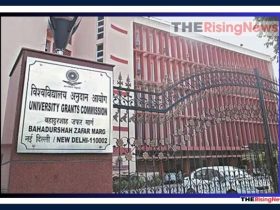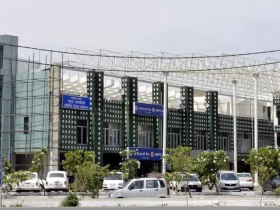NOIDA, India, August 2, 2024 – In a significant development that could reshape India’s real estate landscape, the Adani Group, led by industrialist Gautam Adani, has announced a one billion dollar bid for the assets of the debt-ridden Jaypee Group. This strategic move by the Adani Group to bid for Jaypee Group’s extensive real estate and cement units signals a major expansion into the Indian property sector.
The Adani Group bid for Jaypee Group encompasses valuable assets primarily located in the Delhi-NCR region and Mumbai, including high-end residential complexes, sprawling townships, and cement manufacturing facilities. This ambitious offer comes as Jaypee Group grapples with a massive Rs 50,000 crore debt, making it one of India’s most prominent bankruptcy cases.
Prime Real Estate Assets in Adani’s Crosshairs
The one billion dollar bid by Adani Group for Jaypee Group’s assets includes several marquee properties:
- Jaypee Greens Township in Greater Noida, spanning 452 acres
- Jaypee Greens Wish Town in Noida, covering 1,063 acres
- Jaypee Greens Sports City
These prime real estate assets under Jaiprakash Associates Limited (JAL) represent a significant opportunity for the Adani Group to establish a strong presence in the lucrative Delhi-NCR property market. The acquisition would complement Adani’s existing real estate portfolio in Mumbai, valued at approximately Rs 6,000 crore.
Adani’s Strategic Expansion and Financial Implications
The Adani Group bid for Jaypee Group is part of a broader strategy to diversify its business interests and capitalize on opportunities in the Indian real estate sector. By acquiring Jaypee’s assets, Adani aims to position itself as a major player in the property market, rivaling established developers.
As part of the proposed resolution package, the Adani Group is offering around Rs 15,000 crore to banks and other lenders. This substantial offer could provide much-needed relief to Jaypee Group’s creditors while allowing Adani to acquire valuable assets at a competitive price.
Impact on Indian Real Estate Market
If successful, the Adani Group bid for Jaypee Group could have far-reaching implications for the Indian real estate sector. The infusion of capital and expertise from a well-funded conglomerate like Adani could accelerate the completion of stalled projects and restore confidence among homebuyers.
Market analyst Rohan Kapoor commented, “The one billion dollar bid by Adani Group for Jaypee Group’s assets is a game-changer. It has the potential to transform the competitive landscape of the Indian real estate market and position Adani as a dominant force in the sector.”
Strengthening Adani’s Cement Sector Presence
The acquisition would also strengthen Adani’s presence in the cement industry, as Jaypee Group’s cement units are included in the bid. This vertical integration could provide synergies and cost advantages for Adani’s future real estate developments.
Future Prospects and Challenges for Adani’s Real Estate Venture
While the Adani Group bid for Jaypee Group presents significant opportunities, it also comes with challenges. The successful integration of Jaypee’s assets and the resolution of ongoing legal issues will be crucial for realizing the full potential of this acquisition.
However, if executed successfully, the deal could lead to enhanced infrastructure development and increased investment in the Delhi-NCR region. Adani Group’s financial backing and operational expertise could accelerate the progress of ongoing projects and potentially revive stalled developments.
A Pivotal Moment in Indian Real Estate
The Adani Group’s one billion dollar bid for Jaypee Group marks a pivotal moment in the Indian real estate sector. As Gautam Adani seeks to expand his conglomerate’s footprint in the property market, this strategic move could reshape industry dynamics and create new opportunities for growth and development.
As the bidding process unfolds, all eyes will be on the Adani Group and its ambitious plans for Jaypee’s assets. The outcome of this high-stakes acquisition could have lasting implications for India’s real estate landscape and the future of urban development in key metropolitan areas.
News:

















